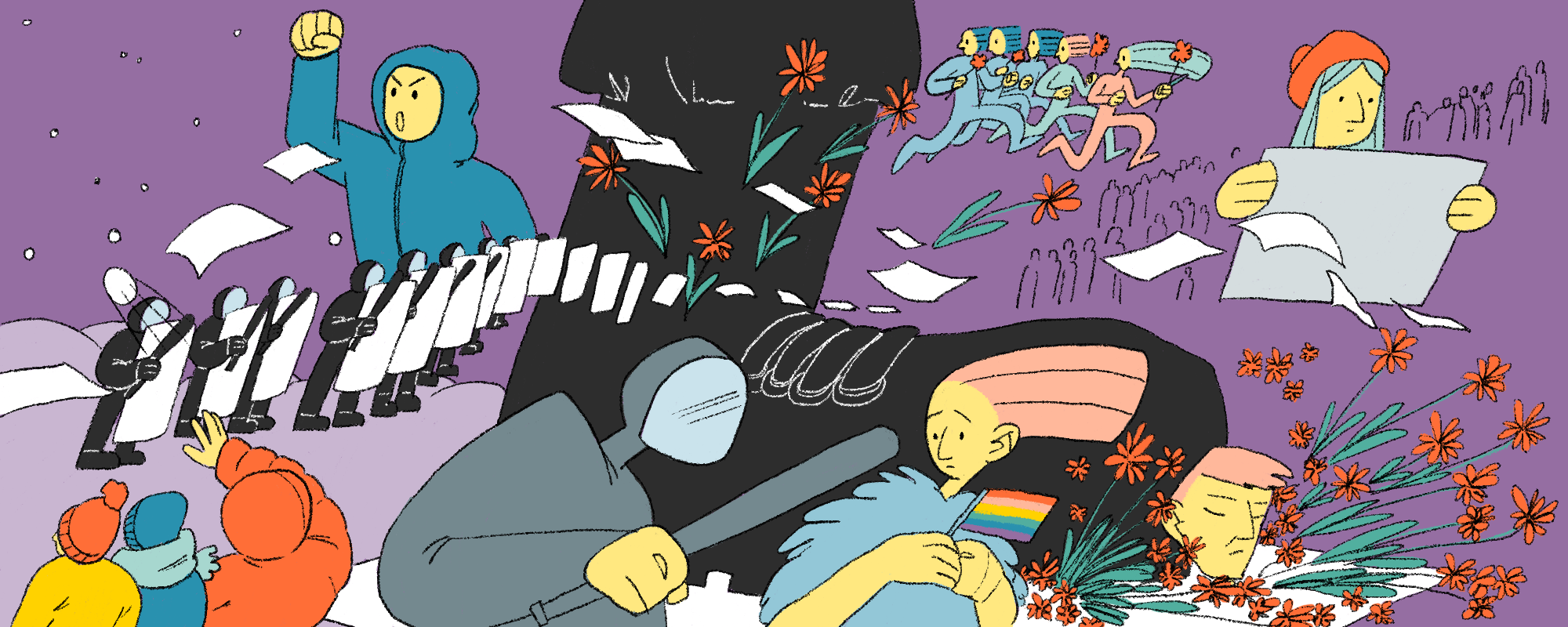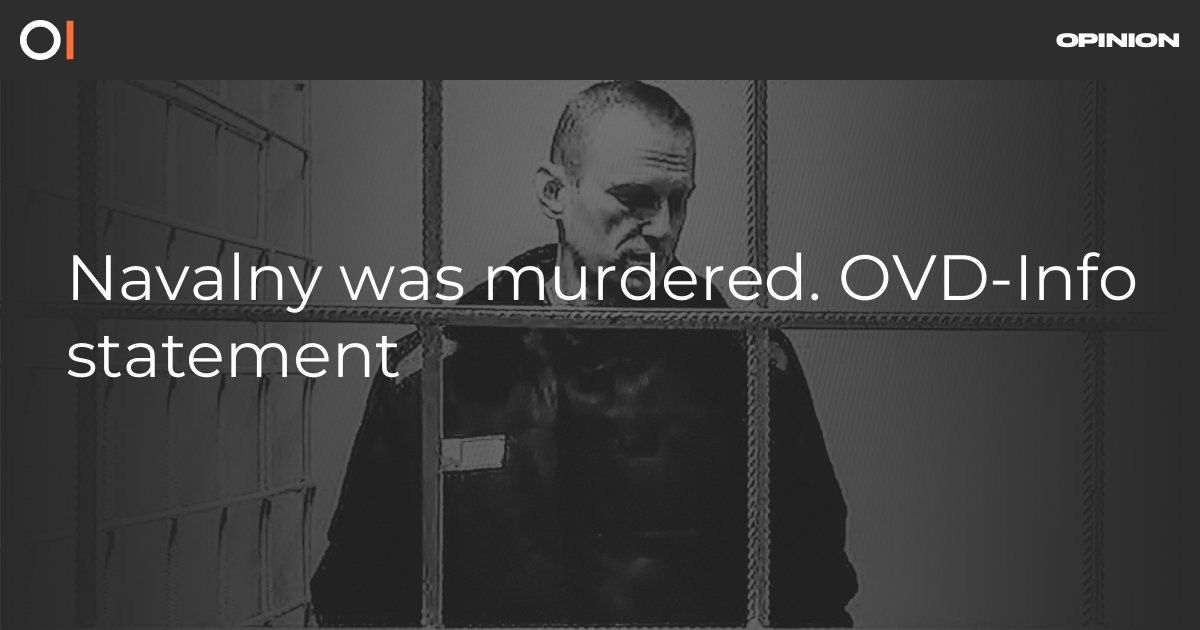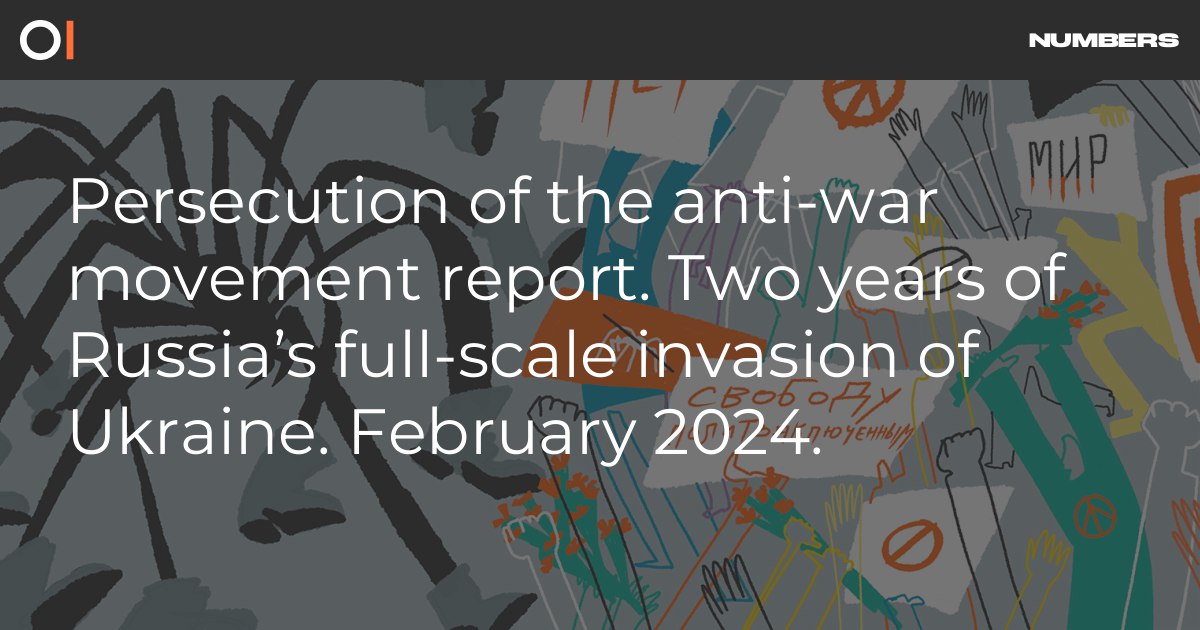On 16 February, Alexei Navalny was killed in the colony in the village of Kharp (Yamalo-Nenets Autonomous Region). After this, the politician’s family could not receive the body for a long time, and people all over Russia were detained while laying flowers in his memory. The funeral service and the burial were only held two weeks later.
Minniyar Bayguskarov was buried in Baymak (a small provincial town in the Republic Bashkortostan). According to the official version, he committed suicide. Locals reported that the man had been severely beaten during interrogations concerning a criminal case regarding protests in support of activist Fayil Alsynov.
OVD-Info reports on these and other important cases of political pressure in this February chronicle.
Alexei Navalny’s murder



On 16 February, the Federal Penitentiary Service on its website published a press release, reporting the death of Alexei Navalny. The authors of the text claimed that the major Kremlin’s opponent «felt bad after the walk», and that the medical workers who «immediately» arrived at the scene were unable to do anything. Propaganda news channel Russia Today soon wrote that a «detached blood clot» was the cause. OVD-Info considers the incident a murder.
That very evening, Russians began laying flowers at monuments to victims of repression to honour Navalny’s memory. Several hundreds of people faced detention due to the mourning events. The politician’s mother, Lyudmila Navalnaya, fought for over a week to get her son’s body and bury him publicly. During this time, she was threatened that «something will be done» with her son’s body, she was told she must agree to the terms of law enforcement officers and organise a secret funeral because «time is not working [in her favour], the corpse is decomposing».
OVD-Info ran the ‘Dyatel’ [Woodpecker] campaign, where people could send their appeals to the Investigative Committee demanding that Navalny’s body be handed over to his relatives. A little less than 100 thousand people sent such appeals.
The politician’s funeral took place on 1 March in Moscow: the service was held at the Mother of God Soothe My Sorrows Church and buried at the Borisovsky Cemetery. On the day of the funeral, OVD-Info became aware of more than 90 arrests throughout Russia.
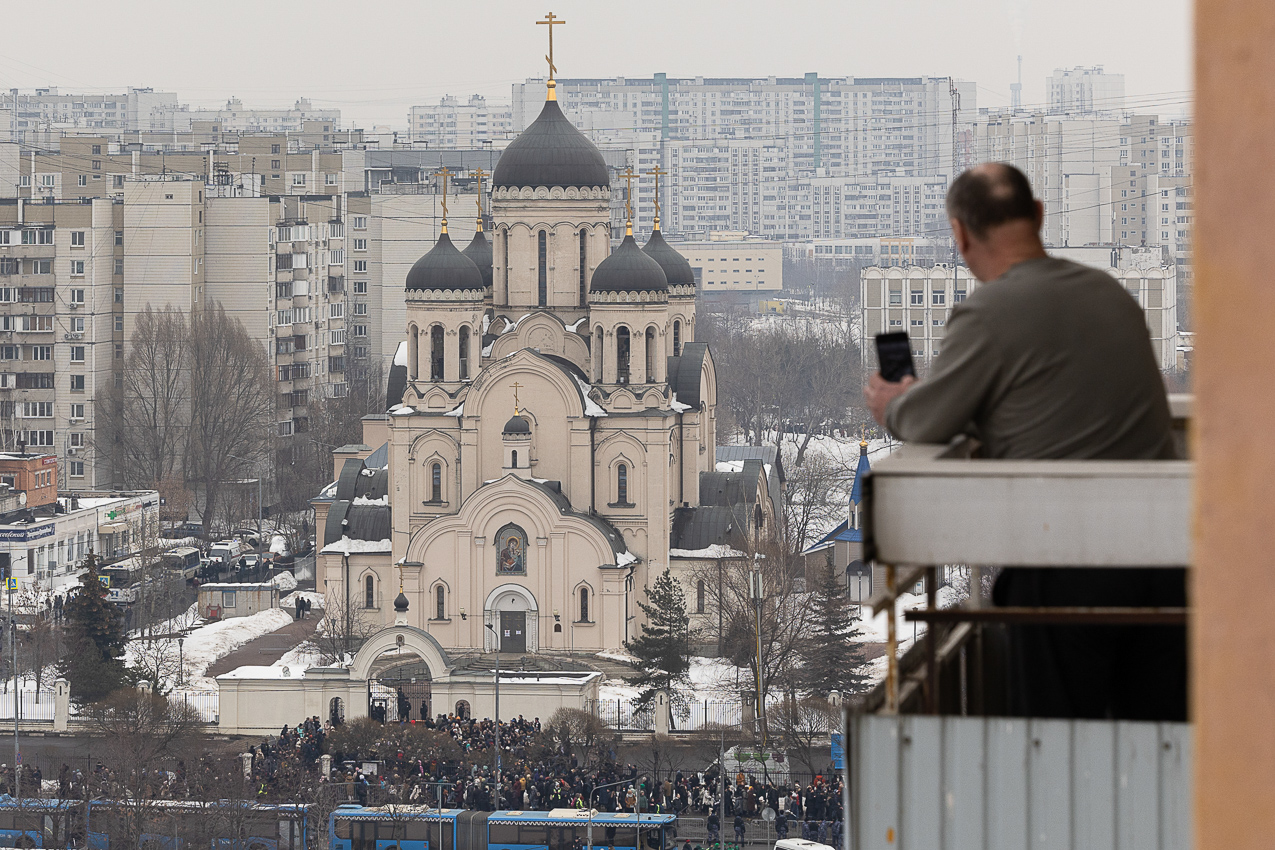
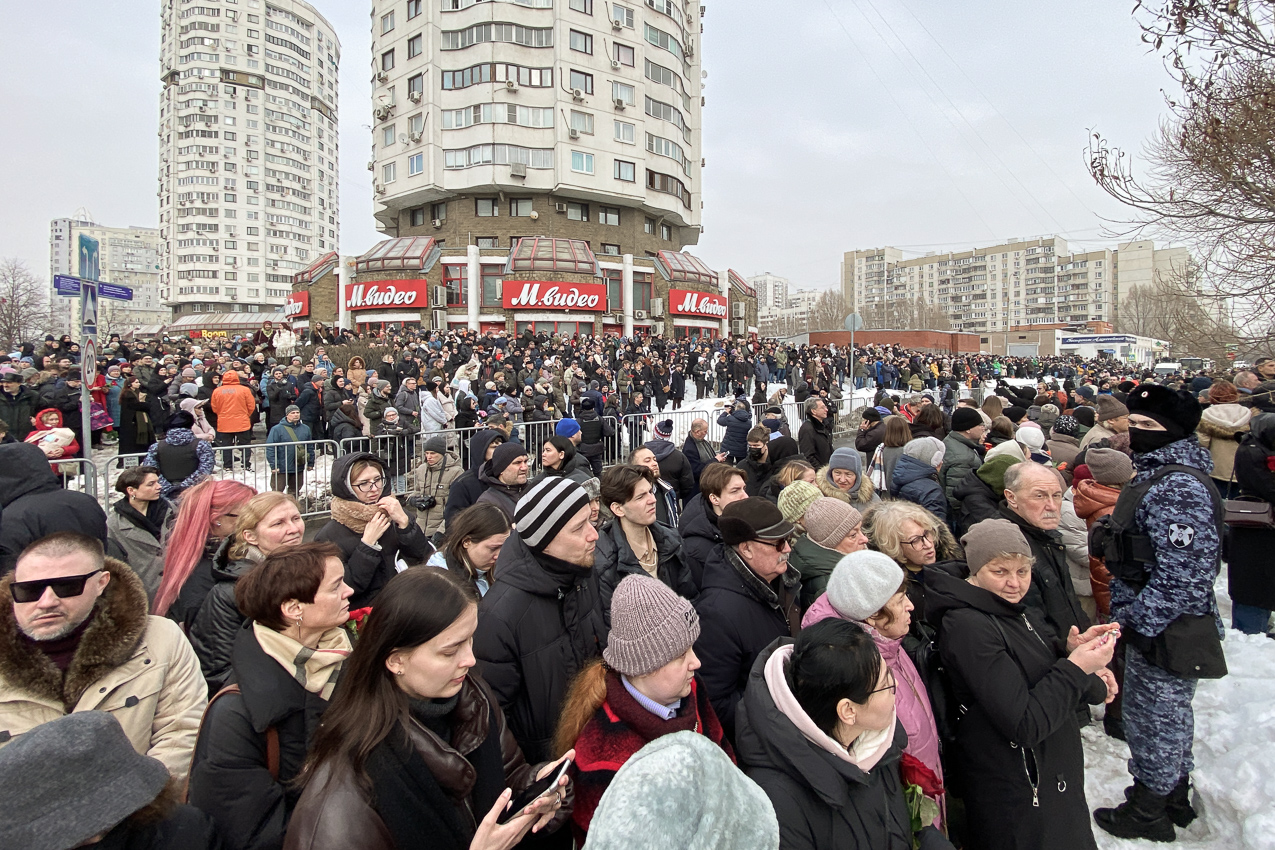
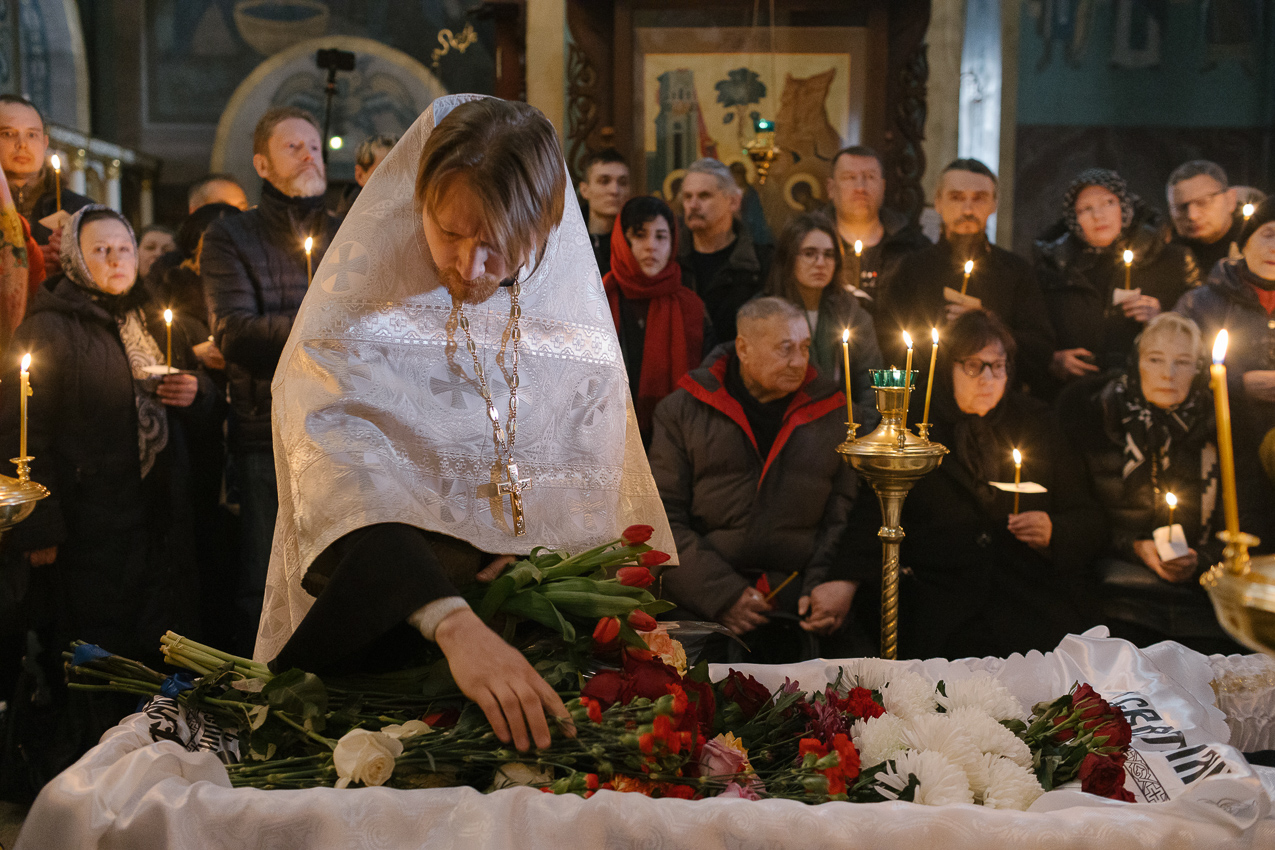
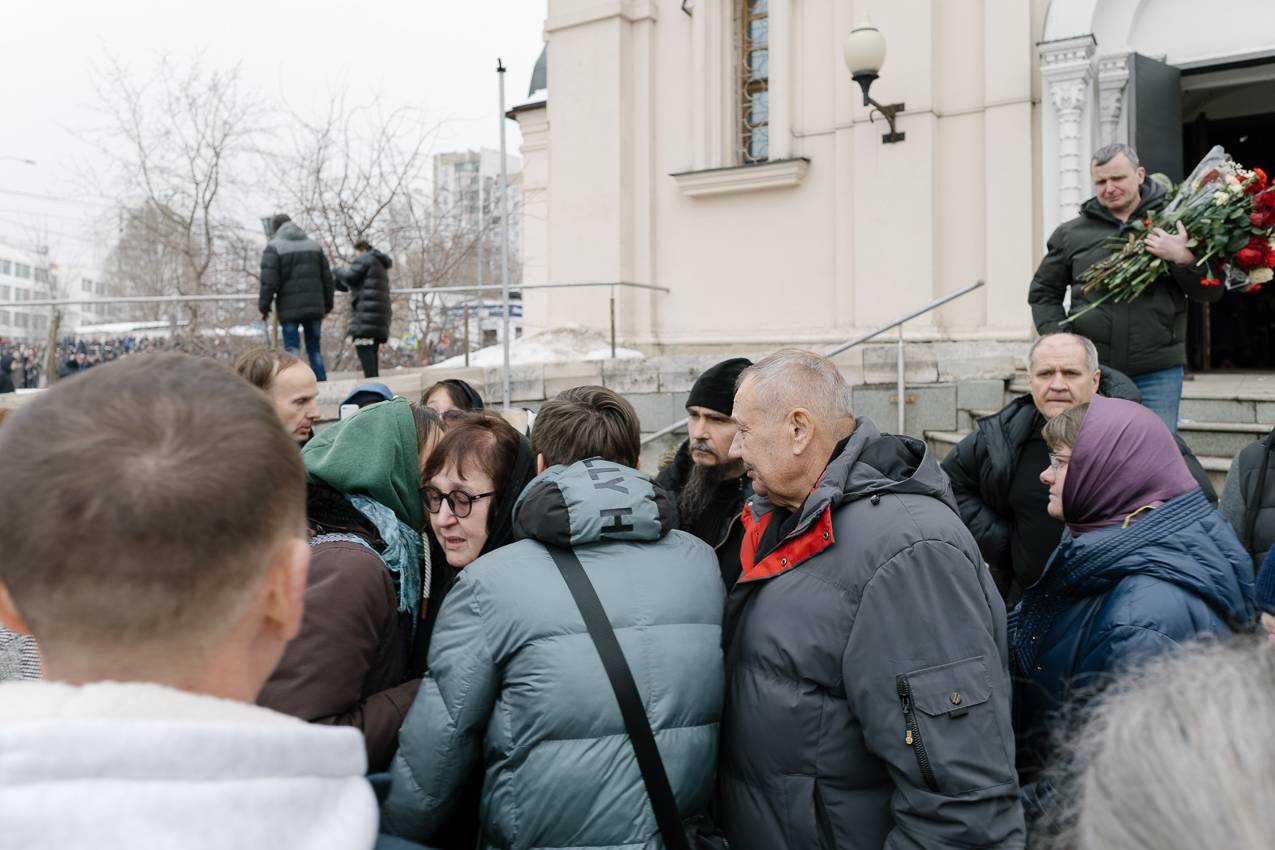
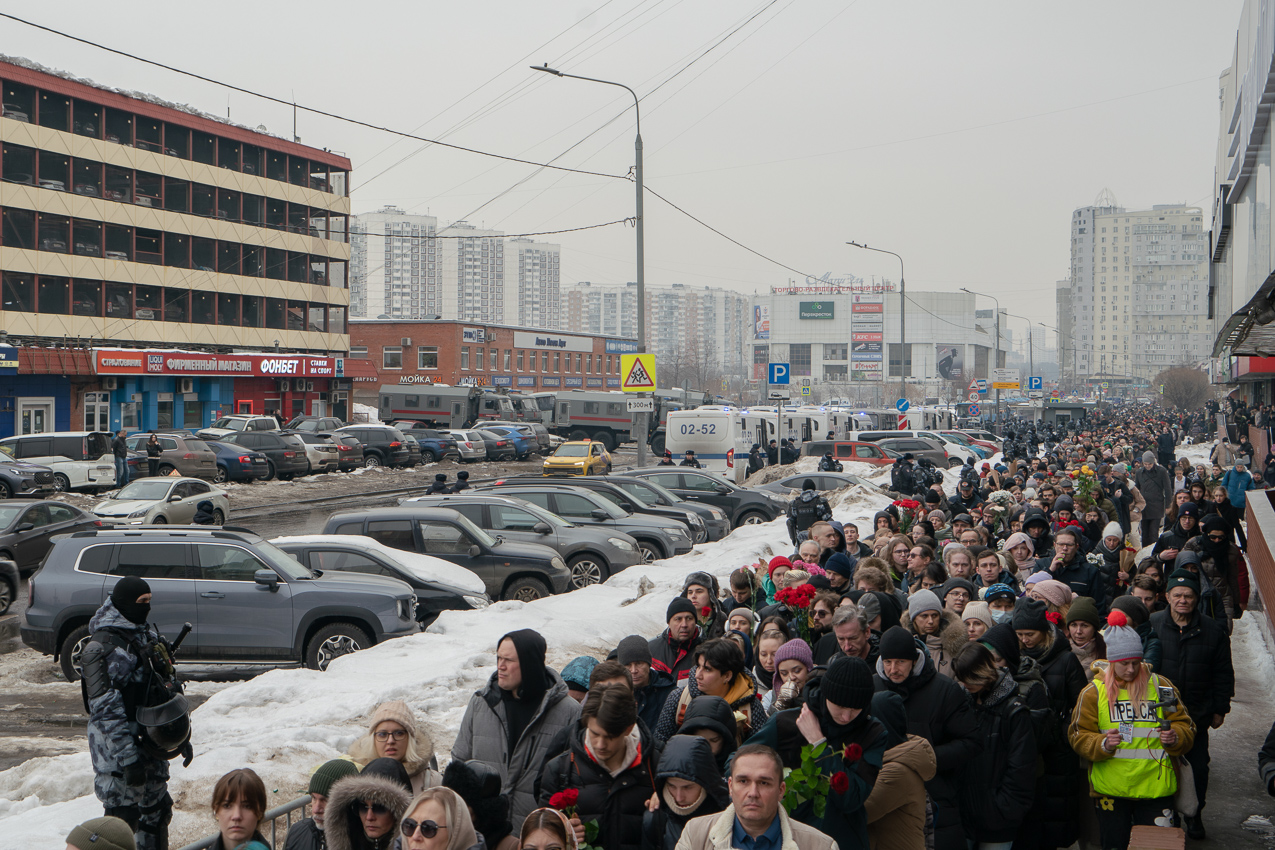
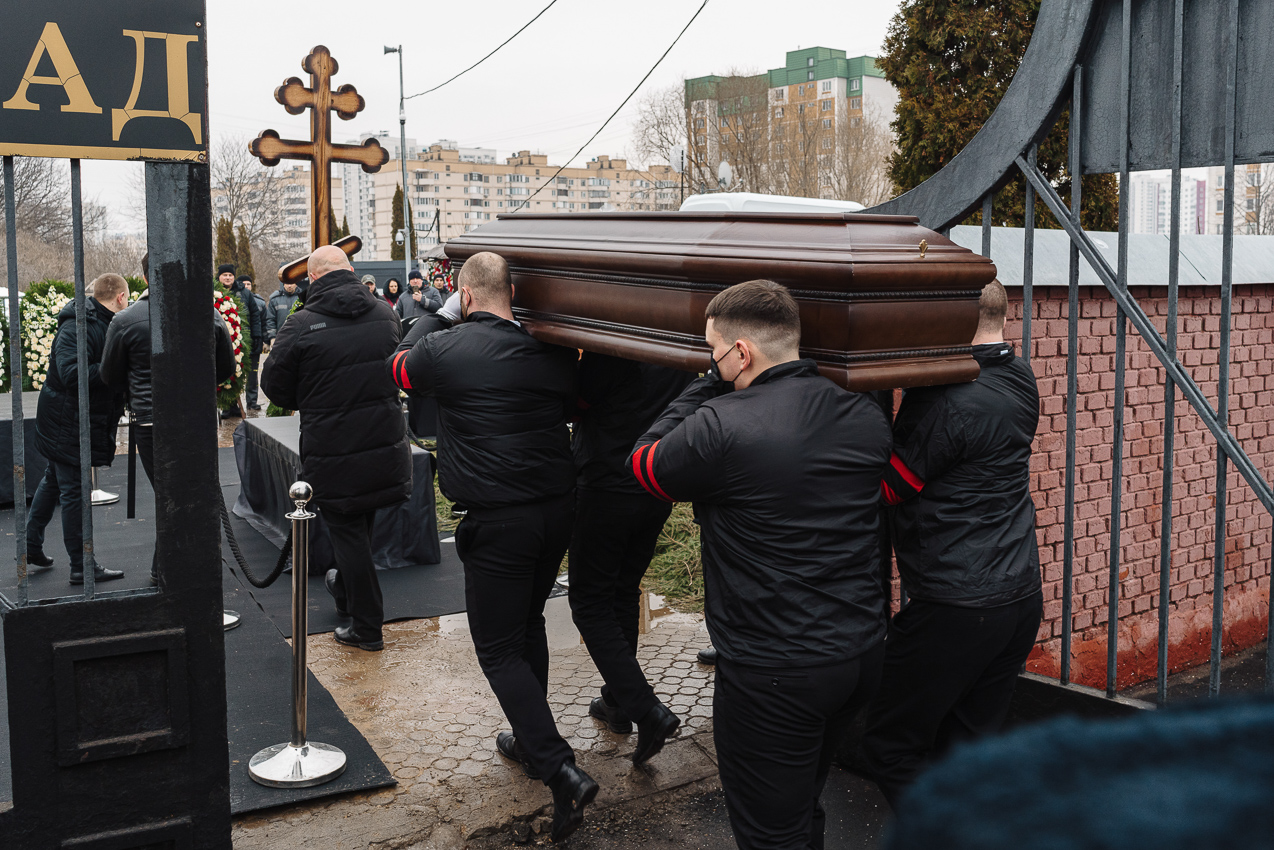
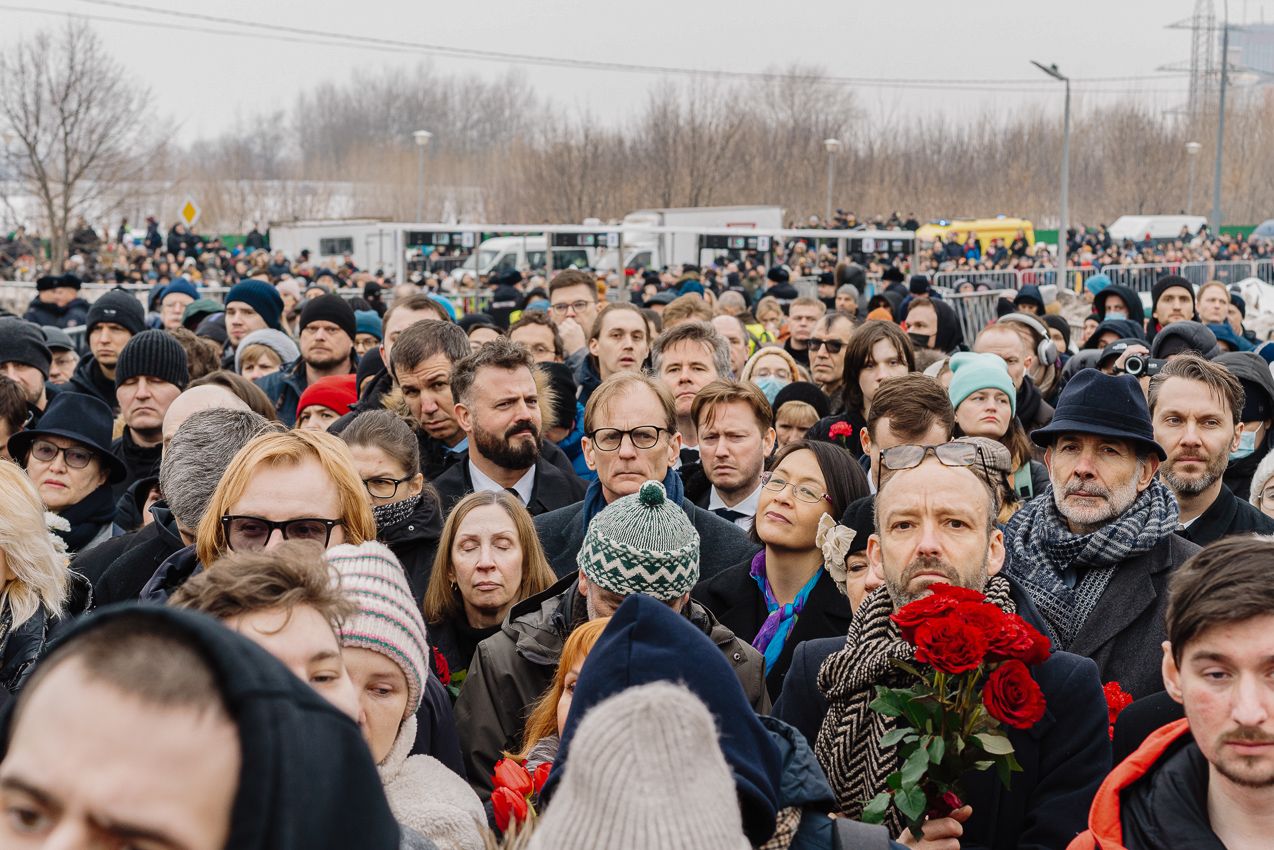
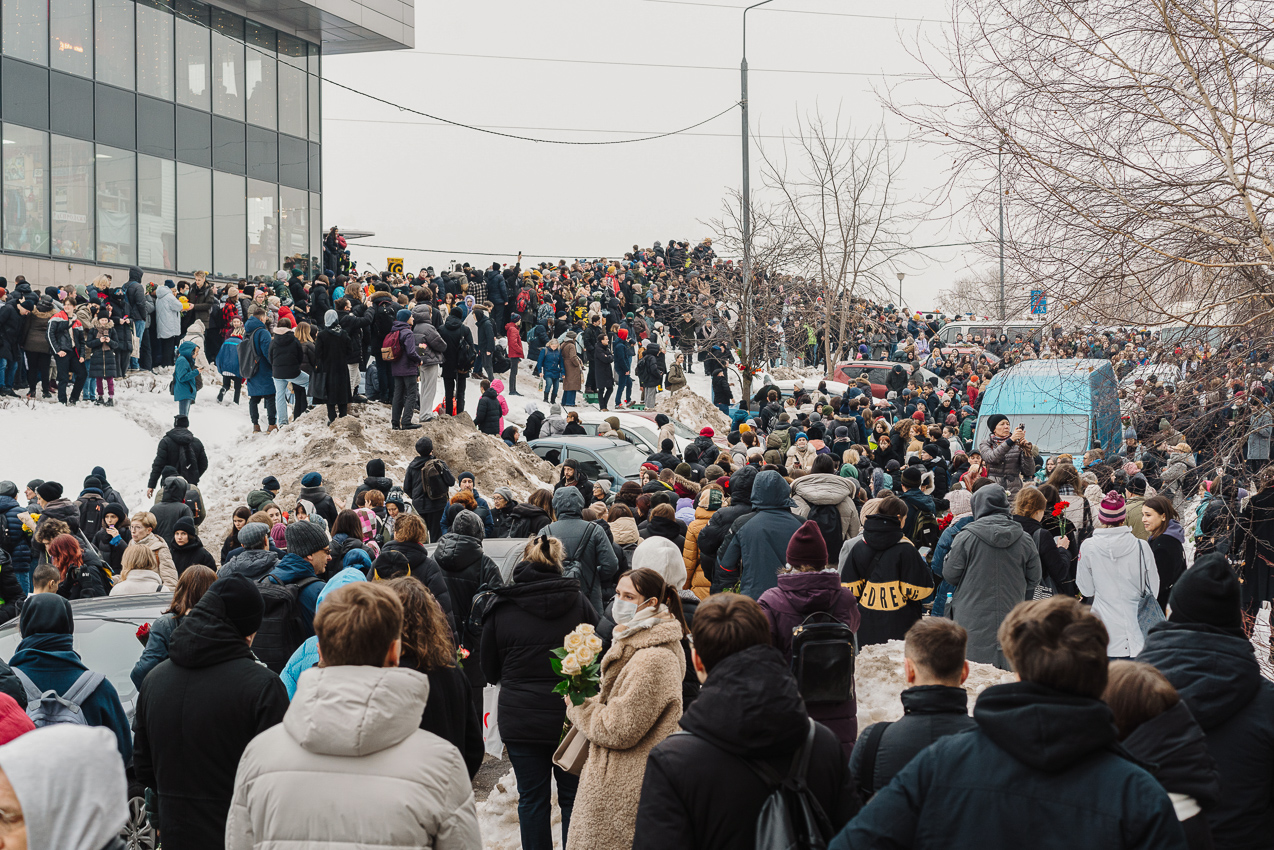
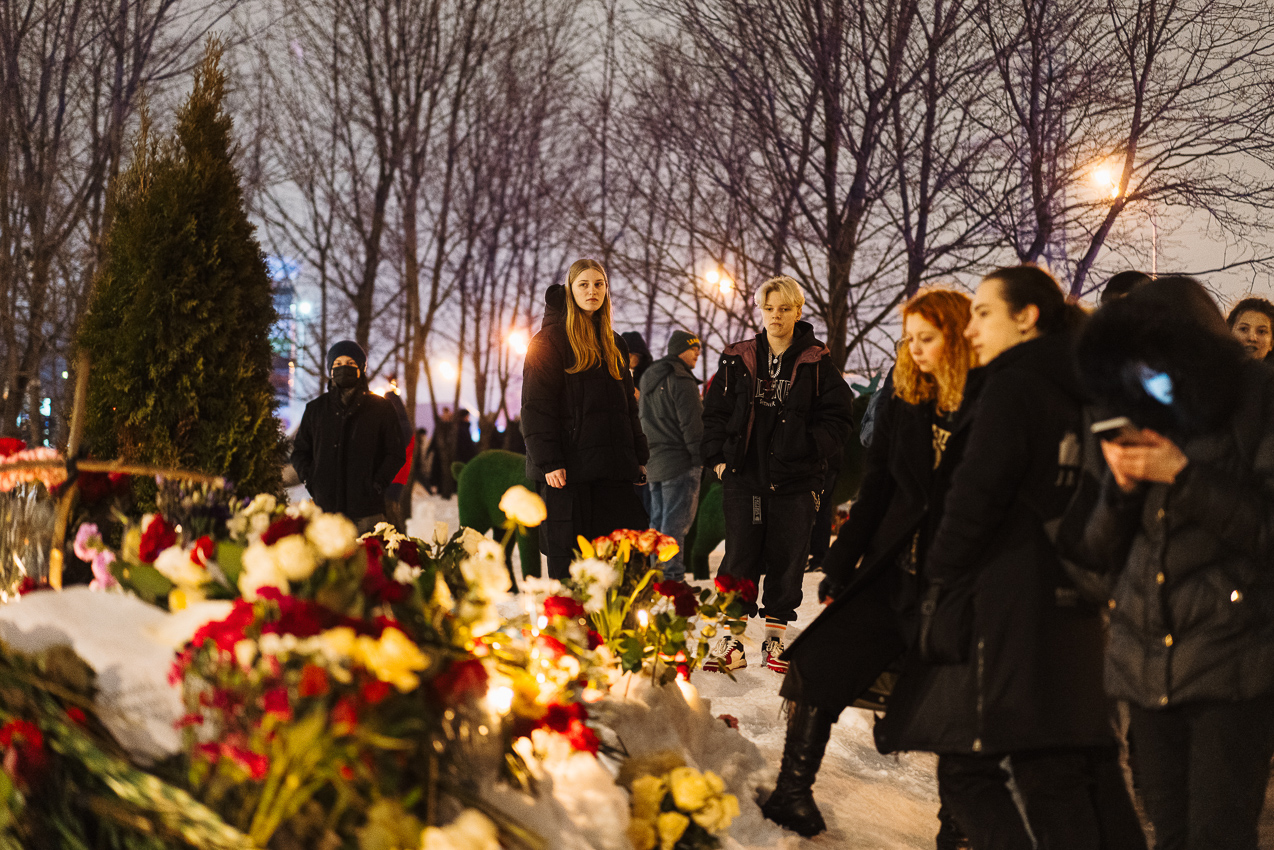
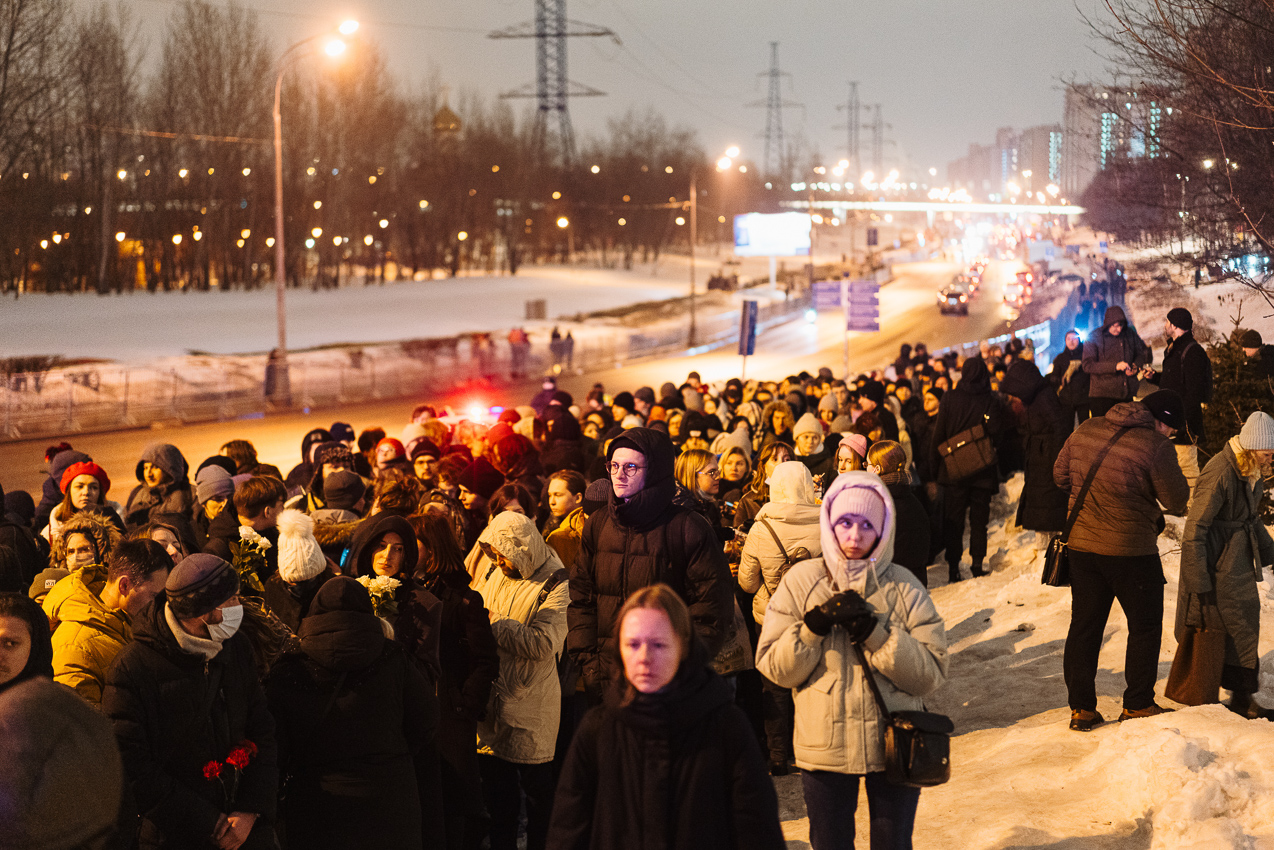
Even after sending Alexei Navalny to a high-security prison beyond the Arctic Circle, where he died, the authorities did not cease the persecution of his supporters and those suspected of associating with them. Three of the politician’s lawyers — Igor Lipsker, Vadim Kobzev, and Igor Sergunin — are currently in a pre-trial detention centre, while two others, Olga Mikhailova and Alexander Fedulov, have been put on the wanted list. The prosecution aims to toughen the sentence for Lilia Chanysheva, the former head of the Navalny Headquarters in Ufa (a Russian megapolis in the European part of the country): initially, she was sentenced to seven and a half years in prison, but the prosecution considers this punishment too lenient. Rustem Mulyukov, an activist involved in the same case with her, is being denied release, despite his disability.
In February, former member of the Nizhny Novgorod (the capital of an intensely populated region 430 km away from Moscow) branch of the ‘Yabloko’ party, Mikhail Sharygin, was sent to a pre-trial detention centre: he is facing prosecution in connection with the case of ‘underground Navalny Headquarters’. Sergey Streknev from Yaroslavl Oblast (a region 250 km away from Moscow), was sentenced to three years in prison for his connection to such Headquarters. Vyacheslav Hertzberg from Syktyvkar (a regional capital 1,300 km away from Moscow), was fined 300,000 rubles (US$3,240) for donating to the Anti-Corruption Foundation (FBK) after this organisation was banned by the Russian authorities.
Persecution for anti-war stance


Sociologist Boris Kagarlitsky and co-chairman of ‘Memorial’ Oleg Orlov had their fines for anti-war statements replaced with actual prison sentences during their appellate hearings. Both were taken into custody in the courtroom. Kagarlitsky received a five-year prison term for the live stream «Explosive Birthday Greeting of Mostik the Cat» (the live stream involved discussions about the attacks on the Crimean Bridge on 8 December 2022, the day following Vladimir Putin’s birthday. Mostik the Cat was previously used in Russian propaganda as a mascot for the Crimean Bridge, his name also translates as ‘little bridge’ — OVD-Info), while Orlov received two and a half years for his article «They Wanted Fascism. They Got It».
Earlier in the month, it was disclosed that a criminal case concerning ‘fake news’ about the Russian army had been initiated against a paediatrician, Nadezhda Buyanova. Authorities conducted a search of her home based on a complaint from the widow of a soldier who fought in Ukraine. In St. Petersburg, 18-year-old Darya Kozyreva was detained after she brought a poster featuring a fragment of Taras Shevchenko’s poem ‘My Testament’ to his monument.
Convicts involved in the ‘anti-war case’, artist Lyudmila Razumova, schoolchild Yegor Balazeykin, and activist Ivan Kudryashov, have reported a significant deterioration in their health. Valeriya Zotova, convicted of attempting to set fire to a military aid collection point, is facing pressure and being denied medical assistance in prison.
OVD-Info regularly updates infographics on individuals facing criminal prosecution for their anti-war stance.
Repressive Rule-Making
On 14 February, Vladimir Putin signed into law legislation allowing for the seizure of assets and the rescinding of honorary titles from individuals convicted under repressive laws. The following day, another bill targeting ‘foreign agents’ was submitted to the State Duma: the Parliament members suggested prohibiting businesses from advertising with foreign agents. The legislation quickly passed all stages of reading, and on 11 March, it received Presidential approval.
Journalist Ekaterina Gordeeva announced that her YouTube project ‘Tell Gordeeva’ will be put on pause due to adoption of this statute. Furthermore, journalist Alexey Pivovarow had to cut down a part of his team because he would not be able to pay salaries due to reduced income.
‘Foreign Agents’ And ‘Undesirable Organisations’
‘Foreign agents’

In early February, the editor-in-chief of ‘Pskovskaya Guberniya’ [Pskov Governorate] was arrested in absentia as suspected of violating the obligations of a ‘foreign agent’. To initiate this proceeding, law enforcement officers needed two enacted judgments on administrative violations of the Russian foreign agent law and one more violation of this law. The parents of activist Itil Temnaya, who had left Russia, were searched at their place. She assumes that under this article a criminal case was initiated against her.
Oppositionist Lev Shlosberg, also a resident of Pskov, was fined under the foreign agent law three times in one day. Another foreign agent record against oppositionist Ilya Yashin was returned to the Federal Service for Supervision of Communications, Information Technology and Mass Media (Roskomnadzor) for revision. The politician himself and his lawyers assume that criminal proceedings may be initiated against him under the article on violating the obligations of a ‘foreign agent’.
On 1 March, the ‘Nuzhna pomosh’ [Need help] foundation, which cooperates with multiple Russian charitable organisations, was placed on the register of foreign agents. Less than two weeks later, employees of the ‘Nuzhna pomosh’ told reporters that more than 80 organisations had terminated contracts with the foundation or asked to ‘temporarily’ withdraw them from the website.
‘Undesirable’ organisations

In the middle of the month, a draft law was introduced to the State Duma. It would make it possible to recognise organisations whose founders or participants are foreign government bodies as undesirable.
A report was drawn up against ‘Yabloko’ party member Alexander Efimov under an administrative article on cooperation with an ‘undesirable’ organisation due to an interview he gave to members of ‘Golos’ [Voice], an election observers movement. Russian law enforcement officers believe that ‘Golos’ [Voice] is a part of the European Network of Election Monitoring Organisations (ENEMO), which was labelled as ‘undesirable’ in the fall of 2021 by the Russian government.
‘Extremist’ organisations and communities
End of this month, the Khabarovsk Regional Court recognised the ‘Ya/My Furgal’ [I’m/We’re Furgal] movement as an extremist organisation. The Prosecutor’s office claims to have discovered certain ‘foreign centres’ that were reportedly actively coordinating the movement of residents of the region who were dissatisfied with the arrest of their elected governor.
In February, yet another organisation that denies the collapse of the USSR was also banned as extremist — this time in Krasnoyarsk Krai (a large Siberian region).
Searches at Jehovah’s Witnesses’ places happened in at least four Russian regions this February: in the Jewish Autonomous Oblast (a small region in the Far East), Nizhny Novgorod Oblast (an intensely populated region 430 km away from Moscow) and Vladimir Oblast (region 185 km away from Moscow), as well as in the Primorsky Krai (an economically and strategically important advanced region in the Far East). In addition, a criminal case under extremist law was initiated against a believer from Karachay-Cherkessia (a small region in the northwestern Caucasus). In Smolensk (the capital of a region bordering Belarus), two Jehovah’s Witnesses were given suspended sentences.
Persecution of politicians, activists and human rights defenders
The wife of convicted ‘Memorial’ member Bakhrom Khamroev told Mediazona that her husband survived a beating in the ‘Vladimir Central’ Prison.
The human rights activist was brought to the institution on 20 December, when the administration confiscated a Quran from him. Over the next month, he demanded at least five complaints about the conditions of detention to be accepted. On 23 January, according to Zukhra Khamroeva, her husband was taken out of his cell under the pretext of a search and severely beaten. She shared that «he was beaten in the legs, in the groin, in the kidneys, there were bleeding scratches on his back, and he lost consciousness from a blow to the head».
Ex-head of the Kuzbass (a region located in Southwestern Siberia) branch of ‘Golos’ Sergey Piskunov was sent to a pre-trial detention centre under the article on lewd acts. Before that, he had been searched in the case of organising an extremist community. During the trial, journalists were told that the extremist article was «not yet brought against him». However, on 1 March, they initiated a case against him under the article on repeated violation of ‘foreign agent’ legislation.
Yury Chilikin, an activist of the Left Socialist Action from Nizhny Novgorod (a Russian megapolis 430 km away from Moscow), has been remanded in custody because of several tweets authored by him. Specific charges against him have not yet been revealed. A 62-year-old public activist accused of blackmailing the chairman of the Chaikovsk City Duma was sent to a pre-trial detention centre in Perm Krai (region in the Urals).
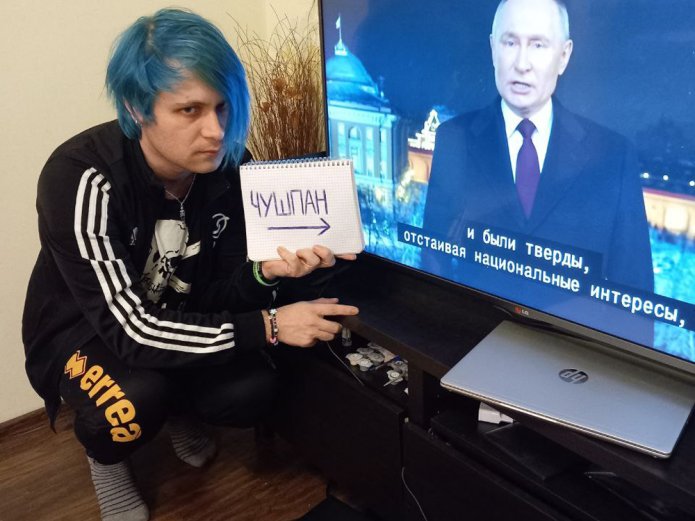
‘StopXam’ [Stop a Douchebag] activists Kirill Kotov, Kirill Bunin and Aleksei Gorbachevsky have been sentenced to six years in a colony for assaulting law enforcement officers. The reason for the case was the conflict between the activists and officers of the Interior Ministry’s special unit ‘Grom’ [Thunder], which took place in June 2022.
Persecutions related to freedom of speech
Persecution of journalists
Kirill Sukhanov, Commercial Director of ‘Ostorozhno, Media’ [Beware, Media], along with Arian Romanovsky and Tamerlan Bugayev, authors of the Telegram channel ‘Tushite Svet’ [Turn off the Light], have been sentenced to seven years in prison or longer periods for extorting Sergei Chemezov, the head of Rostec (State Corporation for the Promotion of the Development, Manufacture, and Export of High Tech Products). Ksenia Sobchak, the founder of ‘Ostorozhno, Media’ [Beware, Media], commented on the sentence, stating that she «fulfilled all agreements to ensure mitigation». «Why such disparity? Just to take revenge?» — she wrote.
Cases of incitement to terrorism, extremism and anti-state activities

Activist Nadezhda Rossinskaya (Nadine Geisler) was sent to pre-trial detention centre as a suspect in the case of calls to donate to the Ukrainian army. After the start of the full-scale invasion, she organised the women’s volunteer movement ‘Army of Beauties’. This initiative aimed to gather humanitarian aid for civilians in Ukraine and assist individuals in escaping from areas affected by shelling.
Cases of rehabilitation of Nazism and desecration of soldiers’ graves
Throughout February, law enforcement officers continued to bring cases of ‘obscene’ actions at Eternal Flame memorials. For instance, schoolchildren from Altai Krai (South Siberian region) faced prosecution for ‘rehabilitation of Nazism’ after constructing a snow phallus at a memorial, while a resident of Kirov Oblast (region 430 km to the East of Moscow) was prosecuted for heating wires on the Eternal Flame. Moreover, a case was initiated in Vladikavkaz (the capital of a region in the Northern Caucasus) for desecration of burial sites due to vases with flowers being scattered on the graves of ‘Special Military Operation fighters’, and in Kaliningrad (the capital of the Russian enclave region bordering Lithuania and Poland) because individuals had a picnic at the Eternal Flame and were jumping over it.
Cases of offending religious feelings
Nikita Zhuravel, a defendant in the Quran burning case, was sentenced to three-and-a-half-years in a penal colony. Meanwhile, Roman Kvitkovsky, who was swearing in a church in Kansk (a town in Krasnoyarsk Krai, a large Siberian region), has been sentenced to two years and three months. Volgodonsk (town in Rostov Oblast, a Southern region) blogger Yury Kravtsov, who was ‘crucified’ on Halloween, was fined 80,000 roubles (US$ 850).
Darya Krichker, an artist and owner of a tattoo studio from St. Petersburg, was detained at Pulkovo airport as a suspect in a criminal case of wounding religious feelings. The reason was her works on religious themes. The case was brought by the ultra-conservative movement ‘Sorok Sorokov’ [‘Forty forties’ — an old Russian euphemism for an ‘endless’ number of churches in Moscow].
The case of artist Vasily Slonov
Local artist Vasily Slonov was searched in Krasnoyarsk (the capital of Krasnoyarsk Krai, a large Siberian region): he was accused of repeatedly displaying Nazi symbols because of photos of his works imitation prison tattoos. In autumn 2023, the artist was fined a thousand rubles (US$10) under the article for displaying extremist symbols because of an installation with a tattooed nevalyashka [Roly-poly toy]. After the criminal case was initiated, the court sent Slonov under house arrest.
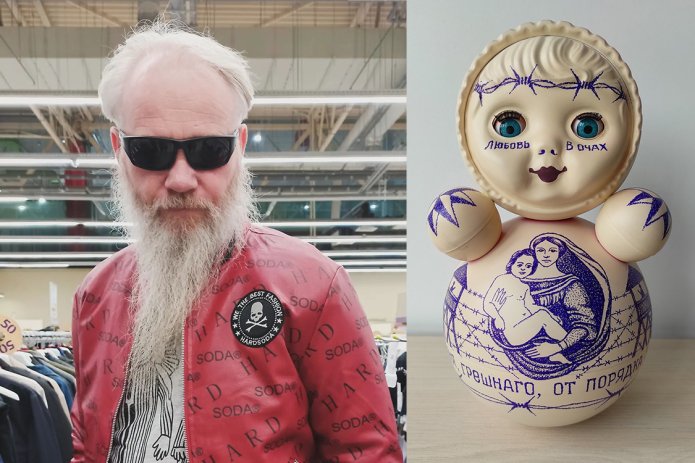
Persecutions related to freedom of assembly
12 times this year, Moscow resident Alexander Silakov has been detained while trying to reclaim his seized apartment
In early February, Alexander Silakov, who used to stand near the Prosecutor General’s Office demanding to bring back his captured business and flat, was sent for compulsory treatment.
During their weekly protests with the demands to return their husbands home, Russian soldiers’ wives faced pressure. Journalists were also detained during several of these rallies over the month (1, 2).
Rallies in commemoration of murdered politician Boris Nemtsov were prohibited in such cities as Barnaul (the capital of a region in South-Western Siberia), Kirov (the capital of a region 430 km to the East of Moscow), Moscow, Kazan (the capital of the Republic of Tatarstan). In Novosibirsk (often called the capital of Siberia), a planned demonstration against political repressions was also prohibited. In Rostov (a densely populated capital city of a southern region), a Communist Party of the Russian Federation supporters’ rally was cancelled after permission was withdrawn. Chechens were warned against holding commemorative rallies on the 80th anniversary of the Vainakh nation’s deportation to Kazakhstan and Kyrgyzstan.
Baymak protests case

Minneyar Bayguzakov, a protester who participated in demonstrations supporting Fayil Alsynov in Baymak, a small town in the Republic of Bashkortostan, committed suicide in February due to pressure from law enforcement officers. According to the defendants' support group, during interrogations, Minneyar was so severely beaten that it resulted in abrasions and issues with urination and his kidneys. He was asked to write ‘some statement’, allegedly compromising other protest participants, but he refused to do so.
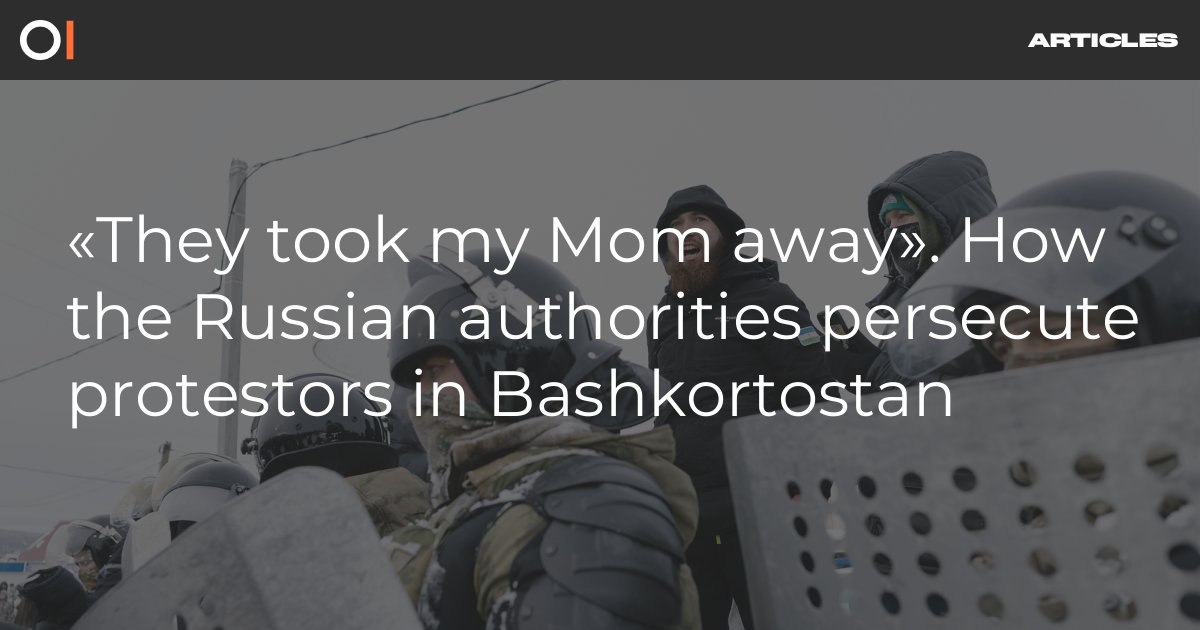
Pressure on LGBTQ+ community

In February, law enforcement officers conducted raids on queer parties in Petrozavodsk (the capital of the Republic of Karelia in the North-West of Russia) and Leningrad Oblast (the region surrounding St. Petersburg). Following the first raid, state-controlled media reported how they «suppressed the activities of a community targeting individuals with non-traditional sexual orientation», while footage from the second raid was broadcast on the ‘REN TV’ channel.
The Ministry of Justice demanded to eliminate the fund assisting transgender individuals called ‘Transgender’, because, in the opinion of officials, it «absolutises personal freedom, actively propagating permissiveness, immorality, and selfishness».
Forceful defence of 'public morality'
In early February, Meduza published an unofficial list of entertainers banned from performing in Russia. It had several dozen musicians listed and was circulated among Russian producers. Later, it was revealed that concerts of several musicians mentioned on the list were cancelled: in particular, Shortparis, Rita Dakota, the musical band Slot, and Lolita.
In Ekaterinburg (a megapolis, the capital of the Urals region) and Tula (the capital of Tula Oblast, 185 km away from Moscow) law enforcement officers conducted several round-ups of sex-parties, Popoff Kitchen, Kinky Party projects and a Petersburg bar S’AINT announced they were closing due to tightening legislation and pressure from pro-government activists.
Repressions against the residents of annexed Crimea
In annexed Crimea, journalist and human rights defender Lutfiia Zudieva, activists Ilias Muslimov, Lenur Iakubov, Shevket Kiiamov, imam Izet Saifullin, the chairman of the religious community Idris Iurdamov, and also the chairman of the Sudak Regional Mejlis, Ilver Ametov had their homes searched by Russian law enforcement officers.
Crimean activists Irina Danilovich and Amet Suleymanov, who are in Russian colonies, have faced refusals of medical assistance.
Server Mustafayev, the convict in the ‘Hizb ut-Tahrir’ case and a Crimean Tatar human rights defender, was transferred to strict detention conditions, which prevented him from continuing his studies at the Law faculty.



